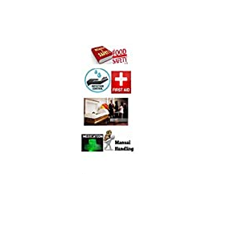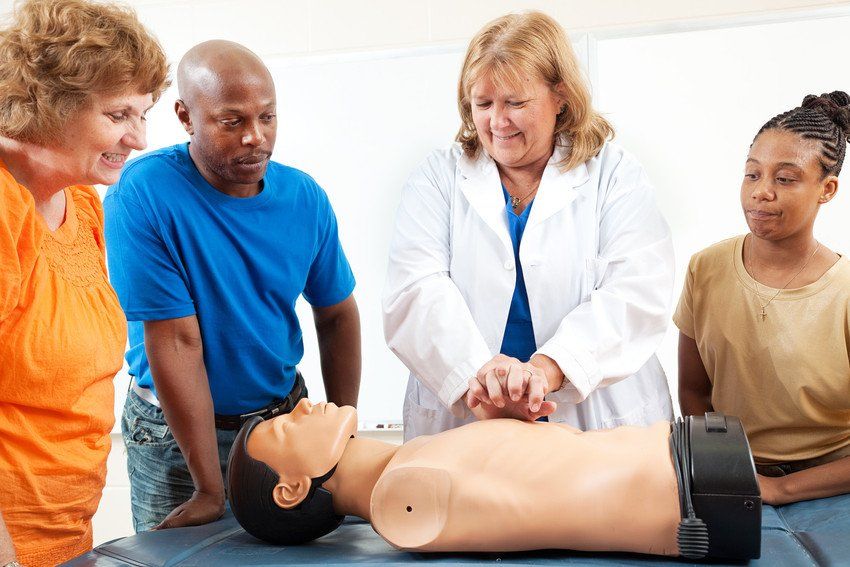International Online Collage
Areas We Cover
coming soon
What we propose to teach / Syllabus :
- GCSE
- AS Law
- A Level
- Bachelor's Degree

- Beginner
- Intermediate
- Advanced


- Levels 2,3,4
- RMA (Registered Management Award)
- A1 (NVQ Trainer & Assessor)
- V1 ( Internal Verifier)
- Nursing Care Assistant

- Training of Pastors & Imans
- Religious Faith Centre Administrator Training
- English
- French

Law Training we propose to offer
Coming Soon
Propose syllabus for As level
( Coming Soon)
Sources of law
• Nature and classification of law
• Common Law and Equity
• Doctrine of precedent
• Legislation
• Statutory interpretation
• Delegated legislation
• Human rights
• Law reform
Machinery of justice
• Civil courts
• Alternative methods of dispute resolution
• Criminal process
• Criminal courts
• Sentencing principles and sanctions of
courts
Legal personnel
• Barristers and solicitors
• Judiciary
• Crown Prosecution Service
• Role of lay personnel
• Lord Chancellor
Propose syllabus for A level
( Coming Soon)
Formation of valid contracts
• Nature of contract
• Offer and acceptance
• Intention
• Consideration
• Capacity
Contents of contracts • Types of term
• Status of terms
• Control of exemption clauses
Vitiating factors • Vitiating factors
• Misrepresentation
• Mistake
• Passing of title under void and voidable
contracts
Remedies for breach • Common Law
• Equitable
Negligence and
occupier’s liability
• Liability in negligence
• Duty of care
• Breach of duty
• Causation
• Occupier’s liability
• Defences
Private nuisance and
Rylands v. Fletcher
• Private nuisance
• Rylands v. Fletcher
Trespass • Trespass to land
• Trespass to the person
Remedies • Common Law
• Equitable
Propose syllabus for Degree level
( Coming Soon)
Law Degree courses :
Criminal, Tort, damages, Contract, Property, Equity and Trust, European law, Public, Constitutional, Judicial Review, Agency.
Dip. Criminology
Advance Dip : Business Law
Level 4: include Employment, Agency,
Damages, Tort, Contract, employment tribunal etc.
English Training we propose to offer
Coming Soon
Appropriate for English as a second language (ESL) learners and those seeking English tests before travelling to English speaking countries such as the UK, Canada, US etc. Also for citizenship.
Literacy Course
( Coming Soon)
Reading
- read in different ways for different purposes, understanding a word, phrase, sentence or whole text in its context, for example to scan a passage in search of words or synonyms, to skim for gist, or to analyse choice of vocabulary to identify implied meaning
- read and understand a range of materials used for informational or publicity purposes, for example timetables and brochures, identifying key information and making comparisons between short extracts
- read and understand a range of unseen texts, identifying overall themes
- read and understand a range of short opinion pieces, identifying the writer’s viewpoints which may be stated explicitly or drawing on inferences which may be implied through the writer’s choice of vocabulary
- read and understand a range of popular articles on a variety of factual, historical, geographical and technical themes, assessing purpose of writing and distinguishing bias, opinions, ideas and facts.
Writing
- write for a variety of audiences, such as friends and acquaintances, pen pals, classmates, teachers, family members, groups and professional bodies
- write in a variety of styles ranging from informal, for example to a friend, to formal, for example to a prospective employer
- write for a range of purposes, for example to inform, persuade or entertain
- write on a range of topics suitable for discussion at the 14–16 age range, for example education, family, health, travel, technology and climate
- write using a wide range of grammatical forms and structures
- write using a wide range of relevant and appropriate vocabulary
- summarise longer passages of text, selecting information that is relevant to the purpose of the summary and paraphrasing this information succinctly without copying verbatim.
The course aims at equipping learners with reading, writing and listening skills as explained below.
Listening
- listen to and understand short extracts and identify the item, place or event which the speaker is describing
- listen to and understand informational broadcasts such as extracts from radio programmes or podcasts, which may involve more than one speaker, and identify key details and opinions in speech that the speaker wishes to convey
- listen to and understand conversations, which may be casual or in the form of interviews, and identify key details/information that the speakers are exchanging
- listen to and understand academic lectures on general interest topics, identifying facts and viewpoints which may include some degree of specialist, technical or complex vocabulary, for example comparing the advantages and disadvantages of an idea or process.
To develop the reading, writing and listening skills, learners will be taken through a robust English grammar coaching. Some of the grammar.
- adjectives and adverbs intensifiers (too, enough)
- comparatives/superlatives
- complex question tags
- conditionals (0, 1, 2, 3)
- discourse markers and linking words
- future continuous
- modals to express certainty, permission, possibility, probability, obligation, request, suggestion, willingness
- past continuous
- past perfect
- past simple
- phrasal verbs (inseparable)
- present simple
- present continuous
- present perfect continuous
- present perfect simple
- past simple
- reported speech (questions and statements)
- passive (basic uses)
- interrogative adverbs / wh- questions in the past
- will and going to for future predictions
- relative clauses.
French Training we propose to offer
Coming Soon
French course outline
( Coming Soon)
Listening
- Understand short recordings dealing with everyday needs (e.g. simple transactions in shops, simple directions or instructions).
- Understand factual information and ideas from a range of sources (e.g. announcements, phone messages, news items, interviews, dialogues) on familiar topics.
- Understand descriptions of events, opinions, emotions, hopes and ambitions in simple texts (e.g. in radio broadcasts, interviews, dialogues).
- Identify main points, specific information and details on everyday topics (e.g. personal and family information, shopping, local area, employment, school, leisure activities).
- Identify main points, themes, opinions, ideas, emotions and attitudes in predictable texts (e.g. news reports, conversations, interviews, simple monologues).
- Deduce the meaning of occasional unknown words and expressions from the context.
The skills covered in the course are outlined below.
Reading
- Understand short, simple texts (e.g. signs and notices in public places, such as streets, restaurants and bus/ railway stations and airports).
- Understand authentic texts on familiar topics and situations (e.g. newspaper/magazine articles, email messages, blogs and letters).
- Understand descriptions of events, opinions, emotions, hopes and ambitions in simple texts (e.g. in articles, interviews or personal messages).
- Identify main points, specific information and details in predictable texts (e.g. advertisements, brochures, menus, timetables, instructions, messages).
- Identify main points, themes, opinions, ideas, emotions and attitudes in predictable texts (e.g. newspaper/ magazine articles, simple plots of films or books).
- Deduce the meaning of occasional unknown words and expressions from the context.
Speaking
- Participate in short social exchanges (e.g. greet people, make and respond to invitations, apologies) and communicate on familiar topics to meet simple needs (e.g. order food and drink, simple transactions in shops, use public transport, ask and give directions, request information).
- Participate in unprepared conversations on familiar topics of personal interest or relevant to everyday life (e.g. family, friends, home environment, hobbies and interests, education, work, travel).
- Describe past events and experiences, hopes and ambitions and give brief reasons for opinions and plans.
- Communicate with reasonable accuracy, using a range of structures, tenses and vocabulary relevant to the given situation.
- Use simple connectors (e.g. and, but, because, then) to link a series of shorter discrete elements into a connected sequence of points.
- Use appropriate strategies to maintain interaction.
- Use features of pronunciation and intonation to convey meaning and attitude
Christianity Training we propose to offer
Coming Soon
Certificate in ministry/ Bible syllabus
( Coming Soon)
Certificate in ministry syllabus ( 1 year)
- General church history
- Old testament survey
- Introduction to Christian ethics
- Basic Christian beliefs
- Principles of evangelism and missions
- Pastoral care and counselling
- New testament survey
Diploma level ( 1- 2 years)
- The syllabus consist of the certificate in ministry plus the second-year theology syllabus.
Pastor Training
- Certificate in ministry
- The syllabus consist of the certificate in ministry plus the first and second-year theology syllabus.
- Plus two years practical experience in registered ministry
Bachelor of theology syllabus
Year 1
- Preaching 1
- The person and works of Christ
- Introduction to the new testament
- Basic Christian beliefs
- Beginners Biblical Greek
- Introduction to the old testament
- Beginners Biblical Hebrew
- General church history
- Introduction to Philosophy
- Principles of mission and evangelism
- Pastoral care and counselling
- African traditional religion
The skills covered in the course are outlined below.
Year 2
- Introduction to Christian education
- Environmental studies
- General church history
- The gospels
- Children ministry
- Christian marriage and family counselling
- Introduction to ecumenism
- Pauline Epistles
- Communication studies
- Introduction to Christian missiology
- Pent. and neo-Pentecostal movements
- African Christian theology
- Introduction to Christian ethics
- Introduction to psychology
Year 3
- Old testament prophecy
- Old testament thought
- Problem of Evil
- Romans
- Issues of Pastoral care and counselling
- Church and society
- Ecuminism in Ghana
- Wisdim literature
- How to prepare a sermon
- Biblical Hermeneutics
- Youth ministry
- Research and academic writings
Information Technology Training we propose to offer
Coming Soon
Computer Course
( Coming Soon)
Computer for Beginners
Mouse, ribbon, Key board command
Microsoft. Word for Beginners, Word for Advance, Power point for, Beginners Power point for Advance Excel for beginners, Excel for Advance Access for Beginners, Access for Advance Computer security, Attacked on computer) Security policy Computer protection
Security on Web, Operation System (OS) How OS works, NOS network OS
Installation of OS, Four ways to install OS installation of second OS
Upgrade OS, Post OS installation/
maintenance, Communication skills
The skills covered in the course are outlined below.
Build computer
List of Components, Procedure to Build a
Computer, environment, motherboard
Cables, testing,
Operational System
How operating system works .
Cables Networking
Laptops and Portable Devices
Functions of Components.
Power supplies. Mother board. Procedure to replace component .
Chips. CPU or the Processor.
Upgrade and configure.
CPU and HEAT /SIN K/FAN. Cooling system in computer
ROM (Read Only Memory)
RAM, ache Types., devise, BOIS Channels
Storage, drives, Drive Interface
hazardous, material, Electricity ,Safety rules, MSDS
Maintenance spills, leaks Tools to build and repair
BMS Technology and DC Power Station Mechanical engineering’
Dangers lurking on the internet.
Fibre Optic System at
McAllen-Miller International, Airport and how it protects the Airport perimeter, States and Challenges of Mobile Forensics. Security Hardware
Biometric Method VPN and RDP VPN, Computer Network
Human Computer Interaction
Computer Advance
Information stream from
Keyboard to Computer screen
Console/Keys
Transmission of Data within
computer.
Pointing Gadget/component
Other information gadgets/cards
Central Processing Unit (CPU)
Principle Memory (RAM & ROM)
Auxiliary Storage Devices
The Motherboard, cards, slot,
Computer case Connectors, USB
Gadgets/Cards/Picture
Storage gadget/processor Scanner
Travel of files/folders within computer
General computer components
Info Unit
Computer- Out Devices/Screen
Printers and plotters
Memory or Storage Unit
Emailing:
Arising advancements /Emerging
Operating System
Software
User interfaces
The Creation of VUI
Innovation used to make a VUI.
Text to Speech
VUI versus GUI
Summary of Voice and Sound
Natural-Language Interfaces
How to secure data during
transmission and storage.
A database approach to information
The new wave in biometric systems.
Data encryption; process, function
Computer skills Photography
Ethics, Computer Forensics
Ethic digital forensics
Cyber threats to the organization
Data decryption and encryption
Introduction to securing data in transit.
Information Retrieve
Introduction to securing data in transit.
Protecting Data in a Network and
during transmission
Computer skills in photography
Health Care Mandatory Training we propose to offer
Coming Soon
Health care training
( Coming Soon)
Training Course
Successful candidates will receive the following training courses:
- UK Mandatory Course
- International English Language Testing System
Essential Health Care Training Courses
- Duty of Care in Health & Social Care
- Basic Life Support / Resuscitation
- Health & Safety & Falls Prevention
- Infection Control
- Handling Medication and Avoiding Drug Errors
- First Aid in the Workplace
- Food Hygiene
- Moving and Handling - Manual Handling
- Fire Safety
- Information, Governance Inclusion, Record Keeping & Caldicott Protocols
- Mental Capacity Act 2005
- Mental Health 2007
- SOVA & SOCA Level
- Peg Feeding
Full training will be given to successful candidates and applicants on a first-come first-serve basis
Essential Health Care Training Courses
- Duty of Care in Health & Social Care
- Basic Life Support / Resuscitation
- Health & Safety & Falls Prevention
- Infection Control
- Handling Medication and Avoiding Drug Errors
- First Aid in the Workplace
- Food Hygiene
- Moving and Handling - Manual Handling
- Fire Safety
- Information, Governance Inclusion, Record Keeping & Caldicott Protocols
- Mental Capacity Act 2005
- Mental Health 2007
- SOVA & SOCA Level
- Peg Feeding
Contact Us
We will get back to you as soon as possible
Oops, there was an error sending your query.
Please try again later



